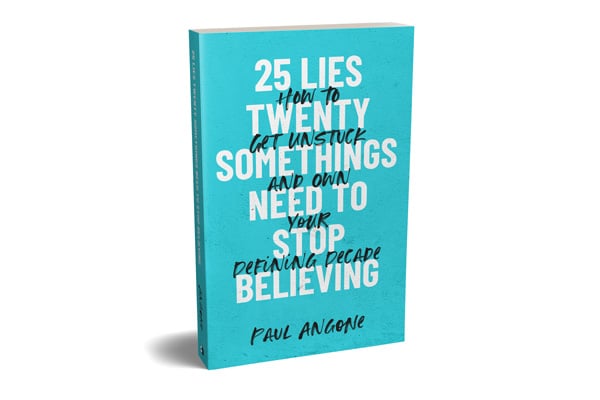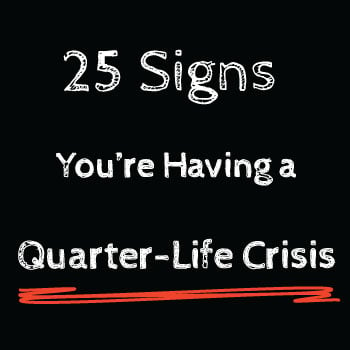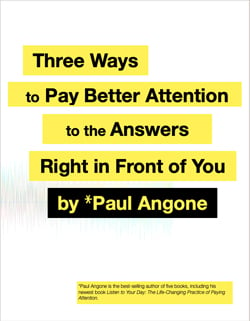It’s Guest Post Friday and today All Groan Up welcomes Amanda Klein to the stage. Amanda is a 2012 grad with a massive crush on nonprofit PR. She currently is freelancing for a small paper. Follow her @inKleined.
Half of all college graduates are un- or under-employed in the U.S. The job market is bleak.
Getting a job interview is like going to a meeting of Fight Club with your competition.
Chances are, you’re un- or underemployed, like me, and looking for something full-time has been a sad, sad experience. If looking for a job, interviewing for jobs and the following rejection letters are wearing you thin, here are some tips to help you reclaim your sanity.
1. Network
Reach out to your school’s alumni and ask for job search advice or an informational interview. Even if the company isn’t hiring, it’s a good way to expand your network and have someone who can get your résumé around. Don’t be afraid to attend networking events in your area. You never know who you’ll meet. I attended a tweet-up last year, and I still chat with some of the people I met there. It was awkward, but it paid off with the connections I made.
2. Create something.
Take something you’re passionate about and make it something to work on. Start a blog or a literary magazine; get in to photography and experiment. Not only will you have something keeping you busy, when a hiring manager asks what you’ve been doing since graduation, you’ll have an answer better than ‘watching TV and eating my parents’ food.’
3. Teach yourself something new.
The Internet is limitless. There are scores of things you can teach yourself to do just by searching for it online. Want to learn to cook or do yoga? Looking in to teaching yourself website design? Did you miss out on learning a useful skill for your field? You have the time to learn something so use it to your advantage. Even if you have a limited budget, you can learn anything.
4. Volunteer.
A lot of nonprofits are all volunteer-based, and some in your area may be looking for extra help. This is a great way to get some perspective if you’re feeling down. Check with clothes closets, food pantries, soup kitchens or other charities to see how you can help.
5. Exercise.
Running is cheap — you just need good shoes — and there are plenty of at-home workouts you can do. It takes up some time in your day, and you’ll feel better about yourself by starting up a healthy habit.
6. Avoid Facebook.
There’s nothing more depressing than getting a rejection letter from a job only to check Facebook and see someone else got a new, fabulous job or started dating some Olympic-athlete lookalike. If you aren’t up to feeling happy for someone else, avoid it so you aren’t crying while watching reruns of The Office and eating an entire tray of brownies. Just me? O.K. But seriously, you’ll find that fabulous job and your own happiness in time.
7. Remember that happiness is a choice.
A full-time job isn’t necessarily the key to happiness, and sometimes you have to create your own until the real deal comes along. As tough as it can be to accept, you’re the one in charge of your happiness. Even with the job search and rejections and feelings of disappointment, you can make yourself happy by doing things that make you happy instead of staring at the TV and comparing your life to everyone else’s.
I haven’t fully gotten myself out of the unemployment pit, but volunteering, freelance reporting and networking have been keeping me busy and opening new doors. Just remember to stay hopeful and keep the faith. Something will happen, and it’ll be amazing.
Any other tips I missed?









Great advice. It’s hard out there, but I’m going to be more diligent about searching for networking opportunities.
Awesome article! I am currently in the unemployment pit and its been rough but volunteering has helped me a lot.
Those are some good tips. From my recently concluded bout of unemployment I’d suggest the following as well:
Try to keep good routines- It is tempting while unemployed. It is tempting to sleep in cause you’ve got nowhere you have to go or to stay up late writing one more cover letter but don’t. Keeping a sleep routine roughly similar to what you’ll need when you get a job makes starting work a bit less draining than it probably would be otherwise and helps your sanity while still job hunting. Taking a weekly Sabbath from your job hunting activities is also very healthy.
Keep good records of your job hunting efforts: After a while all the applications and interviews start to blur together and it is easy to not be quite sure if you’re already applied for a particular job or to get two similar ones confused. Spreadsheets detailing where, for what and when you’ve applied/had interviews can prevent a lot of the confusion.
Look for the funny side- Job hunting can be depressing and monotonous so it helps to look for the funny and absurd things that happen in the process. I keep a list of stupid things in job ads (try-hard metaphors used to describe the company, unintentionally funny spelling mistakes, bizarrely specific job requirements ect) and made a game of trying to work out what reality TV show a particular interview/assessment activity resembled (one company’s recruitment process bore an really uncannily similarity to the bootcamp phase of Australian Idol)
Also, I’ve you are wanting to take the excellent advice in the article of teaching yourself something new, make sure you check out https://www.coursera.org Coursera offers free college level courses online covering a huge range of subjects. The courses generally include lectures, readings, quizzes/assignments, exams, online discussion groups and in many cases certificates of completion. I took a number of courses while unemployed to revise things I learned in the early years of my degree, to learn more about things that weren’t taught in as much detail as I would have liked at my university and learn about things that for various reasons I wasn’t able to study at university. In addition to learning a lot, I found the motivation and discipline from getting the weekly study and assessments done started to rub off on other areas of life like my job hunting and that doing the courses was, in addition to other activities, a really good thing to bring up in response to the dreaded “So what have you been doing since you graduated?” job interview question.